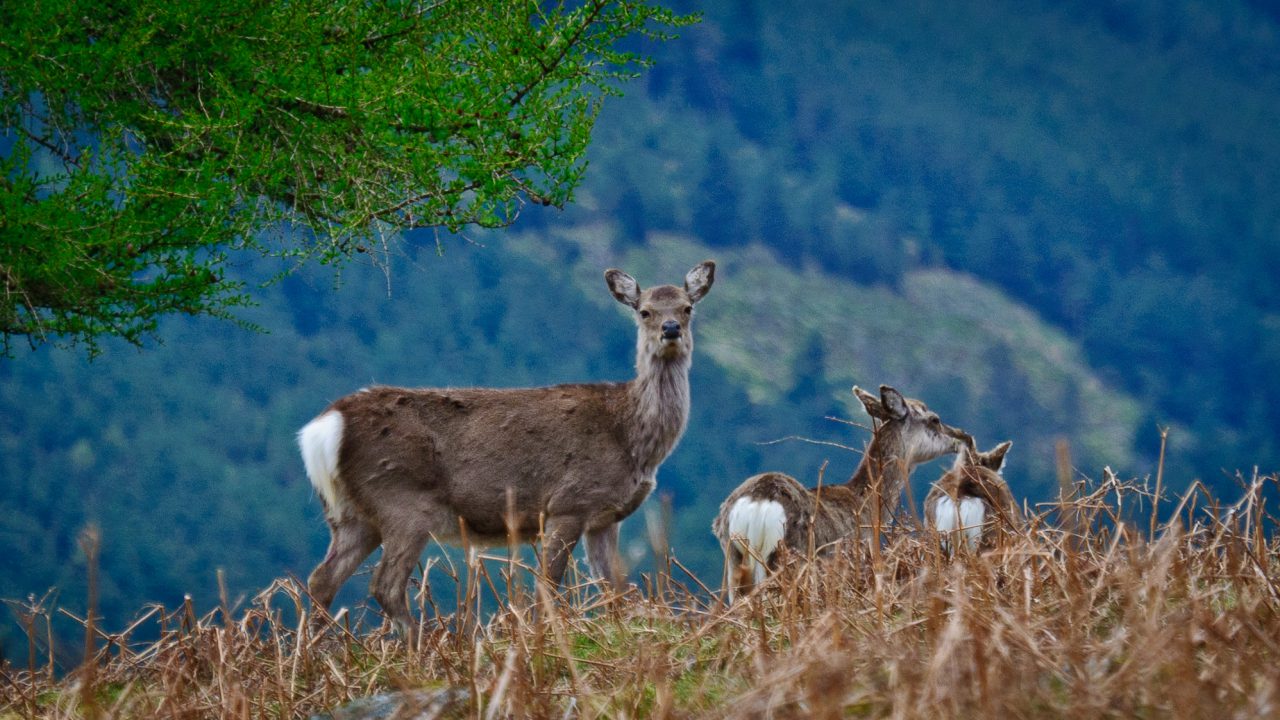New research has suggested growing populations of Sika deer may be linked to local outbreaks of bovine TB in cattle in the Republic of Ireland.
The study, which was conducted by researchers from Trinity College Dublin and the National Parks and Wildlife Service with support from the Department of Agriculture, Food and the Marine, could have major implications for controlling bovine TB.
Although bTB infection rates have decreased in general in recent decades, county-level data shows a correlation between higher Sika numbers and higher local TB infections – with County Wicklow a particular hotspot.
Trinity research on Sika deer
The research, which has been published in the journal Frontiers in Veterinary Science, also reports a similar effect for badger density in Co. Leitrim.
It found that host population density was a “key driver” of TB transmission rates and the size of hosts’ social groups can create opportunities for cross-species disease transmission.
First author of the journal article, Dr. David Kelly, from Trinity’s School of Natural Sciences, said: “Irish farmers have been aware of the effects of bovine TB for well over 70 years. Its incidence has steadily diminished in Ireland, from 3% in 1960 to 0.3% some 50 years later.
“In the mid-1980s it became clear European badgers were a TB wildlife host. Since then, badger populations have been controlled around farms with TB outbreaks whenever those outbreaks cannot be linked to cattle.
“In recent years, however, it has become clear that controlling TB in badger populations cannot rely on culling alone. Along with this change in thinking, there has been a steady shift away from culling and towards badger vaccination.
“Unfortunately, while the management of one TB wildlife host has made great advances, another wildlife TB host has appeared on the radar: deer.”
The number of deer in Ireland has been rising steadily during the 21st century, and studies in Europe and the USA have shown that deer, at higher densities, can sustain TB in their herds. Indeed, recent research has identified Sika deer in County Wicklow as one such maintenance host of TB.
The researchers behind the current study used county-level population densities (taken between 2000 and 2018) to track the three known maintenance hosts of TB in Ireland: Cattle, badgers, and Sika deer.
They then considered how variations in local densities compared with the variation in bovine TB infection across the country (and also at county-level).
Dr. Kelly said: “Our analyses show that while there have been general reductions in TB infection, there is a correlation between increasing Sika deer density and higher local TB infection. This pattern has emerged in recent years and has major implications for TB control within Ireland.
“Now, when attempting to manage TB in wildlife, Sika deer will need to be considered as well as badgers.
“Our analyses suggest Sika deer are currently of greatest concern in County Wicklow but if numbers continue to rise in other counties they may also pose problems elsewhere.”
